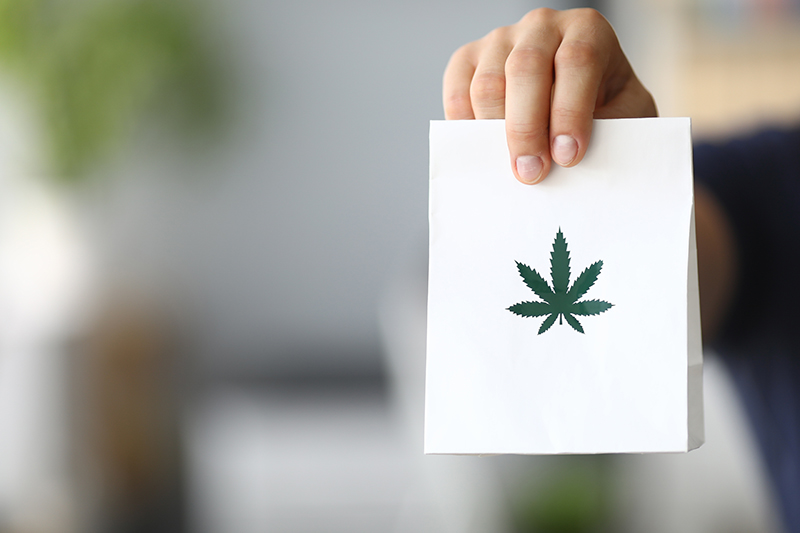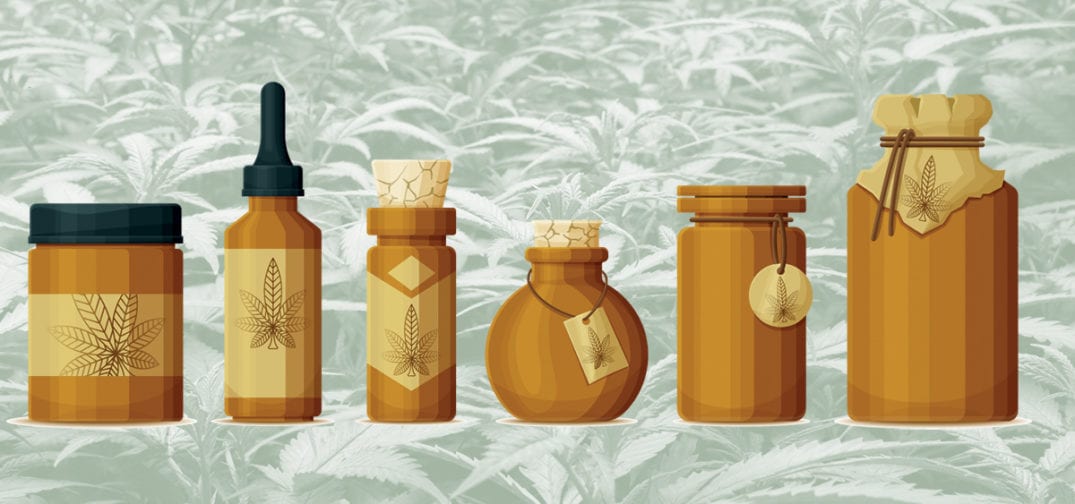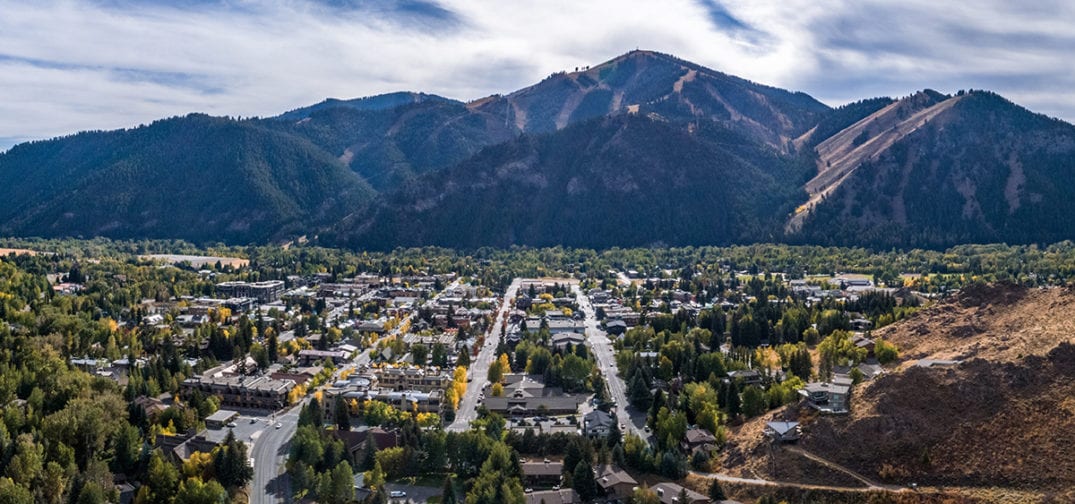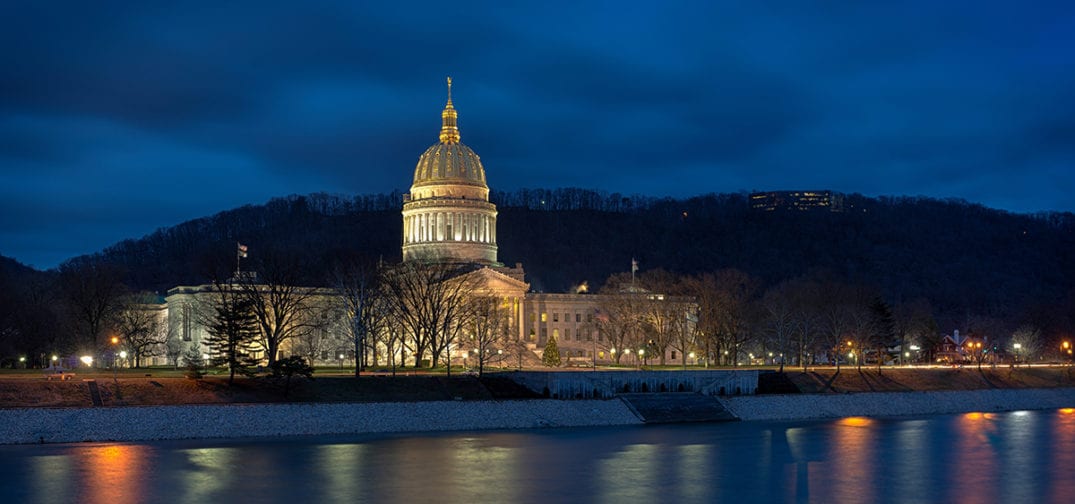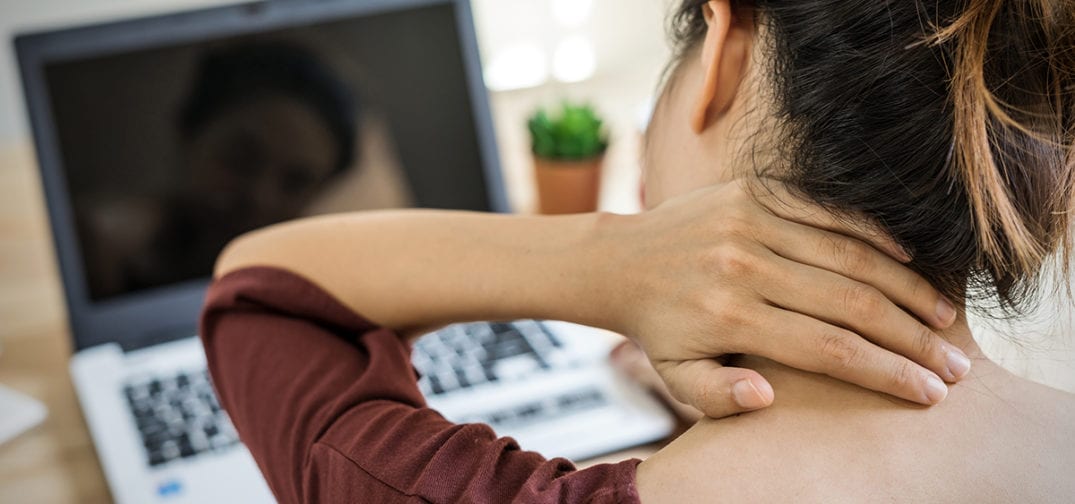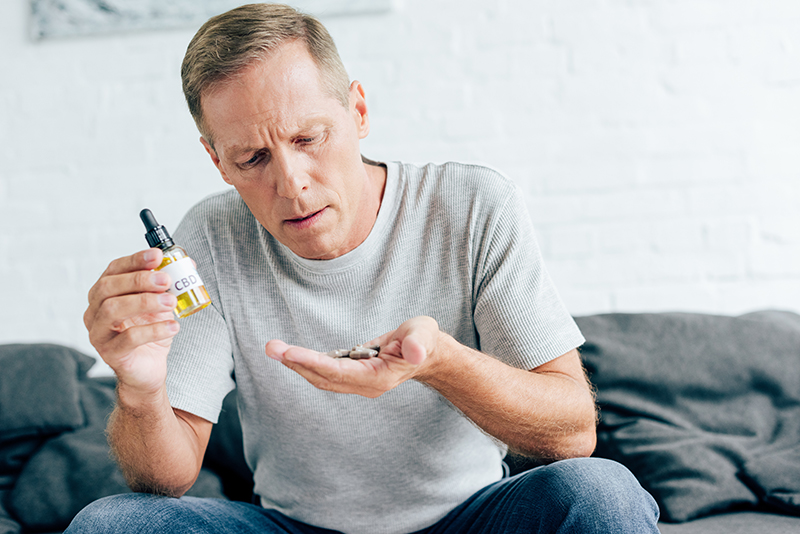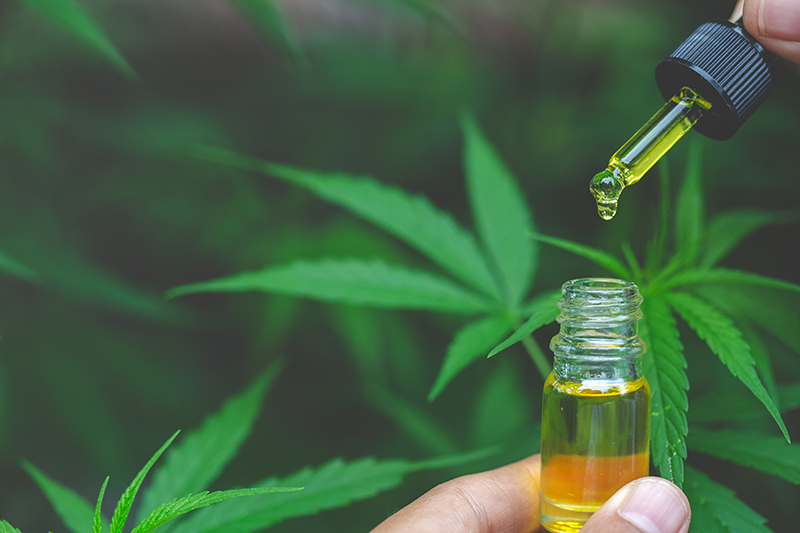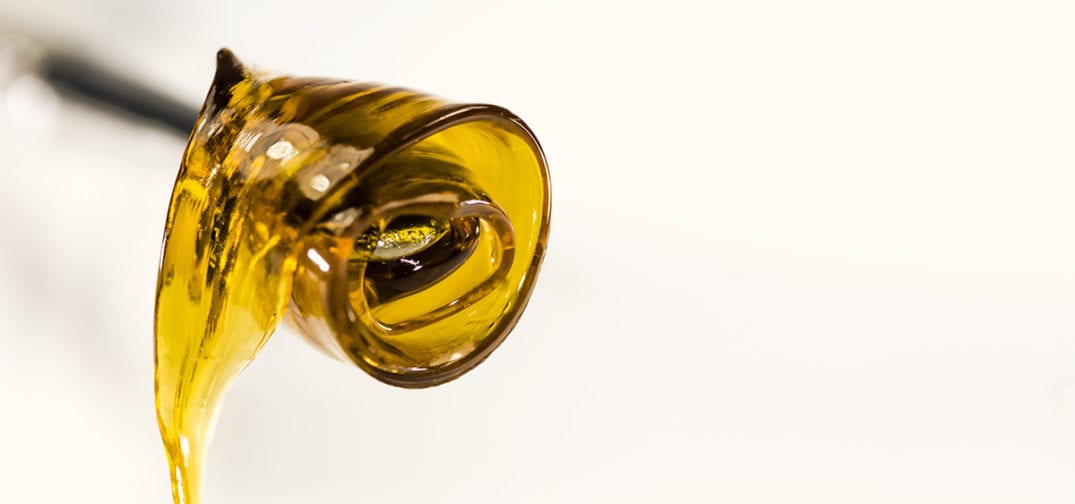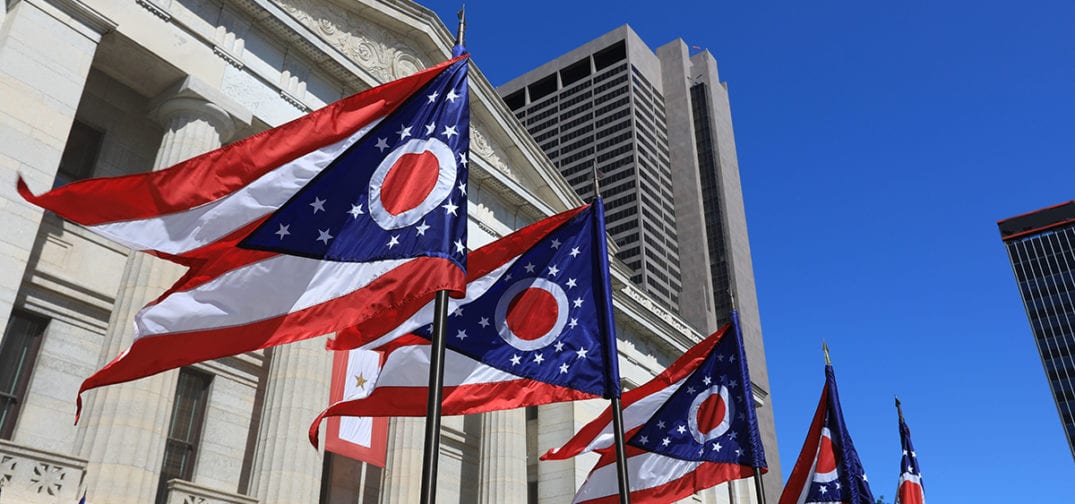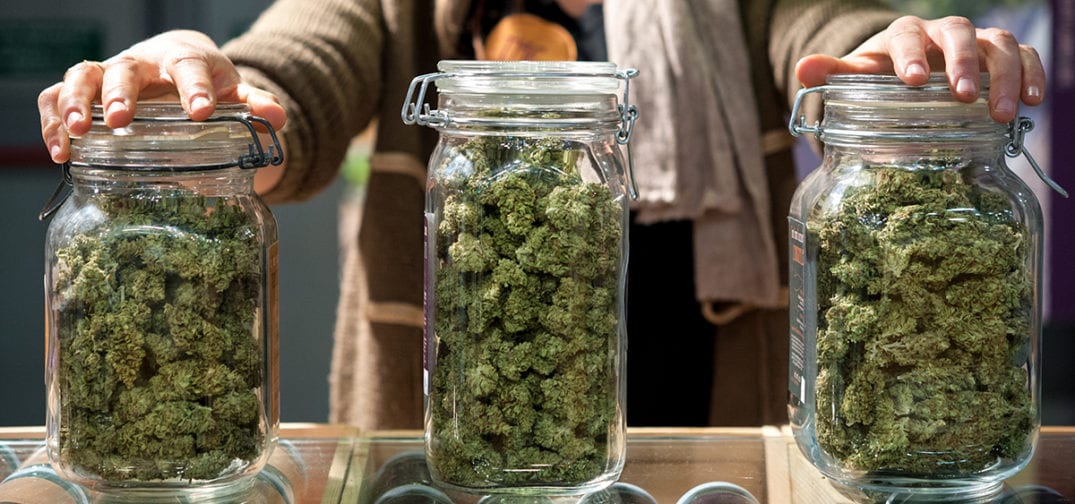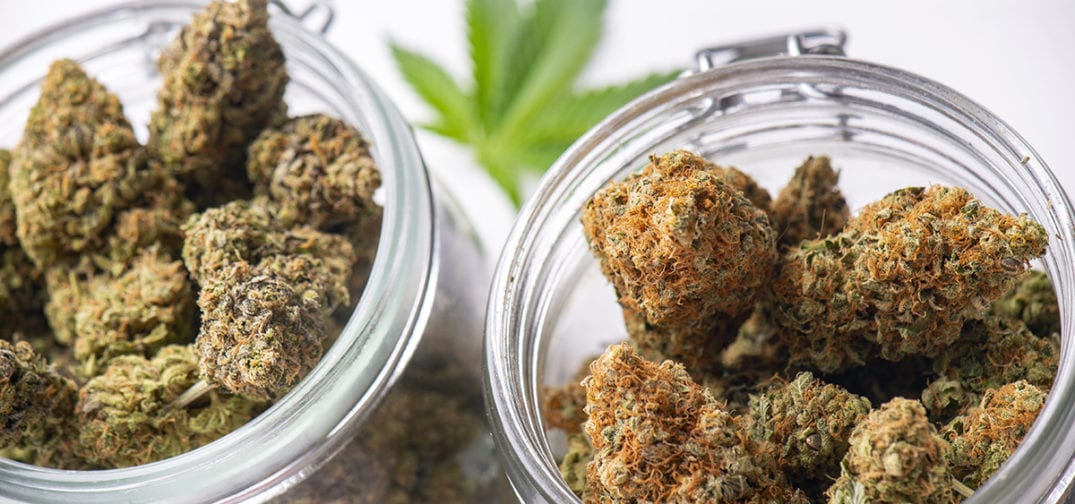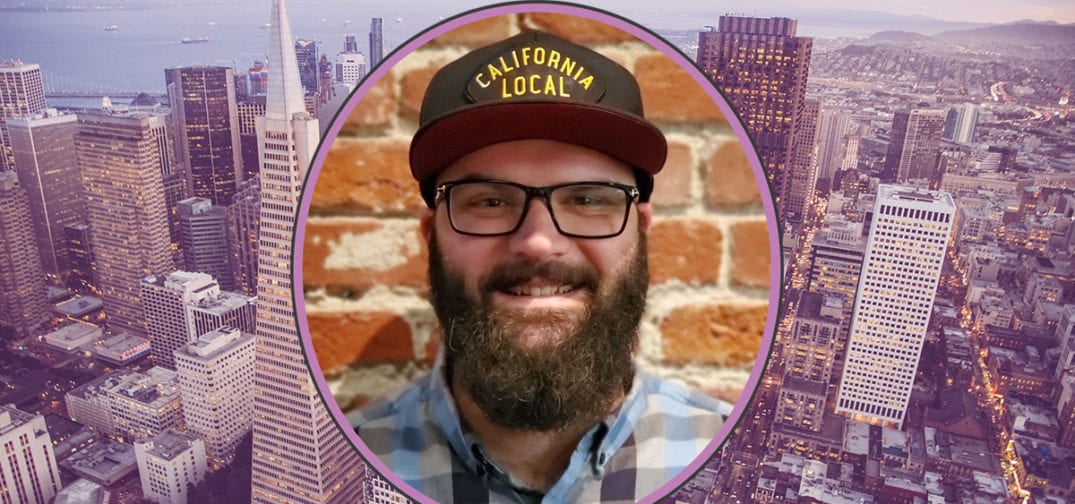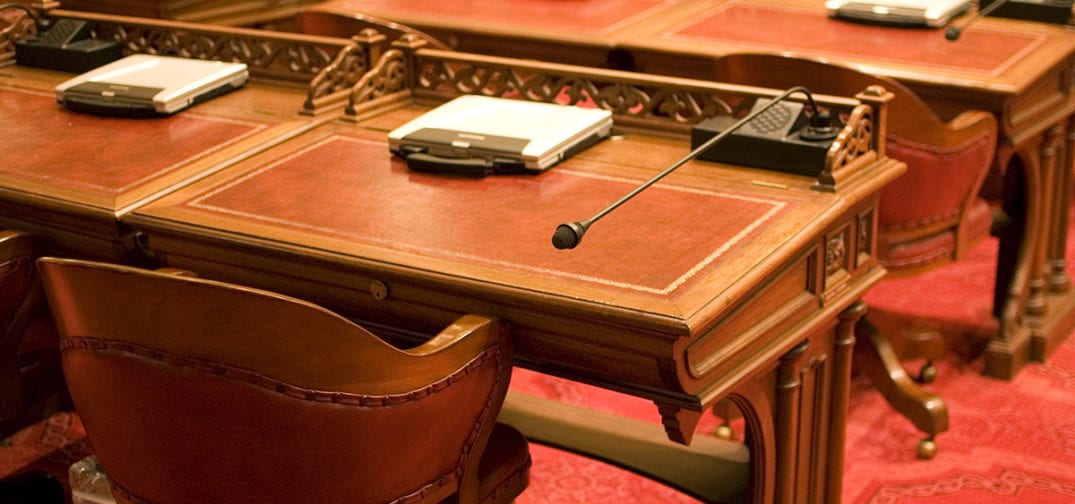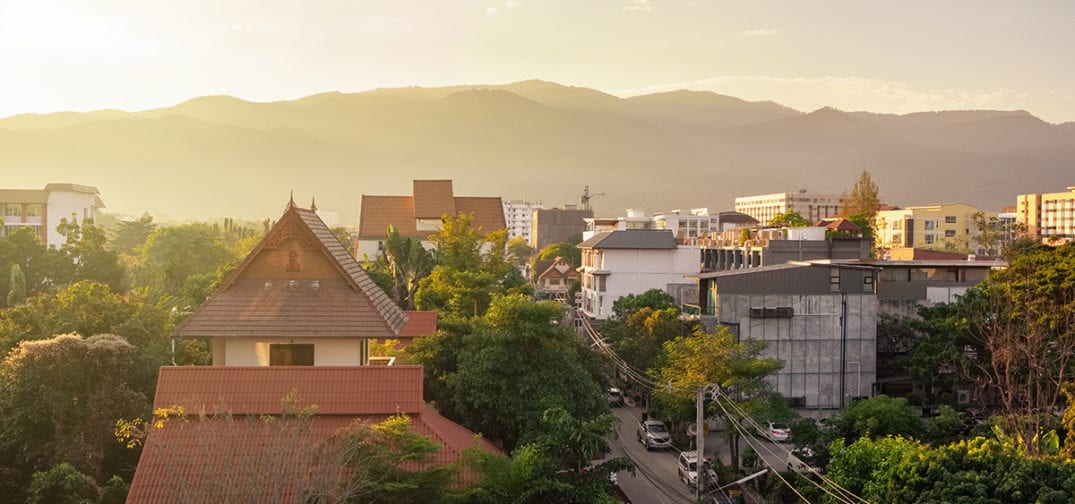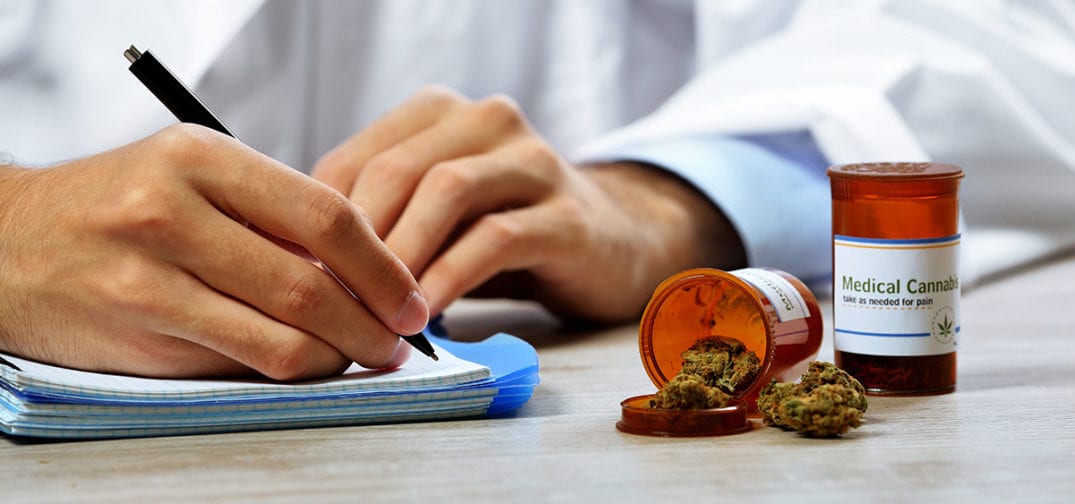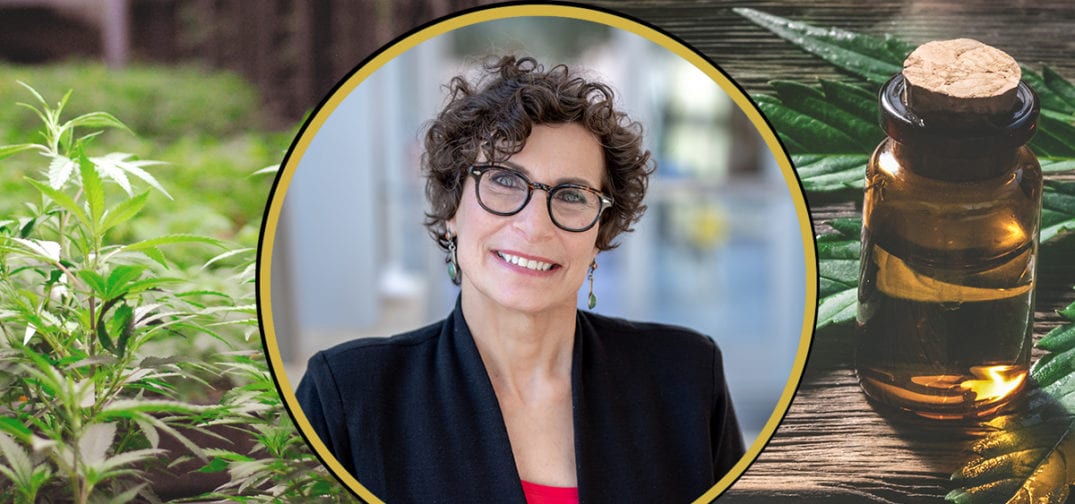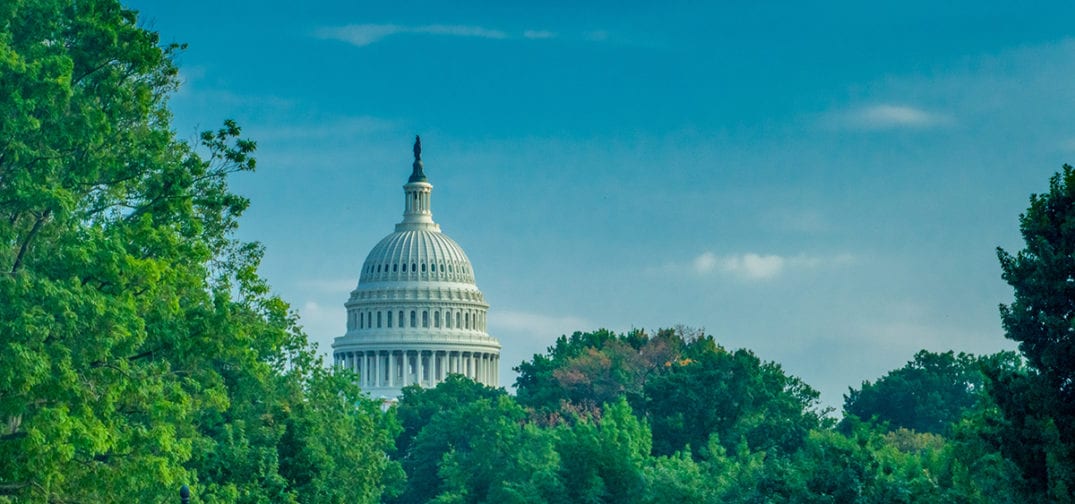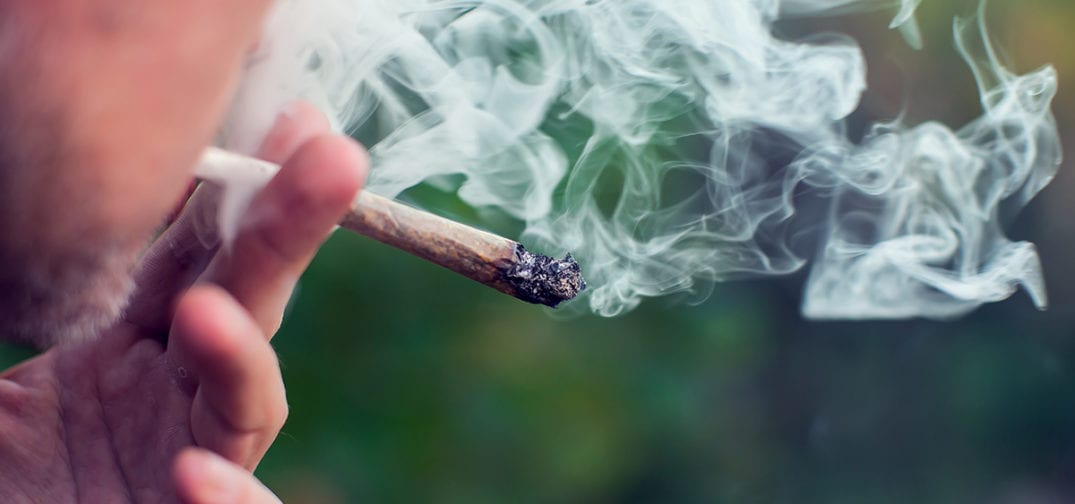Mara Gordon is the co-founder of Aunt Zelda’s, a California medical cannabis brand that emphasizes a scientific understanding of cannabis’s medicinal qualities. Mara recently joined our podcast host TG Branfalt to talk about cannabis medicine, medical cannabis research developments from around the world, using data and technology to drive the medical cannabis space, how to harness the excitement surrounding this industry, and more.
You can listen to the podcast using the player below or scroll further down to read a full transcript of the interview.
Listen to the interview:
Read the transcript:
Commercial: This episode of the Ganjapreneur Podcast is made possible by 420 friendly service providers in the Ganjapreneur business directory. If you need professional help with your business from accounting to legal services to consulting, marketing, payment processing or insurance, visit ganjapreneur.com/businesses to find service providers who specialize in helping cannabis entrepreneurs like you. Visit the Ganjapreneur business directory today at ganjapreneur.com/businesses.
TG Branfalt: Hey there, I’m your host TG Branfalt and thank you for listening to the Ganjapreneur.com podcast where we try to bring you actionable information and normalize cannabis through the stories of ganjapreneurs, activists, and industry stakeholders. Today I’m joined by a woman that really doesn’t need my introduction. She’s Mara Gordon. She’s the co-founder of California based Aunt Zelda’s, Zelda Therapeutics, the oil plant where Aunt Zelda’s oils are manufactured and Calla Spring Wellness. How are you doing this afternoon Mara?
Mara Gordon: I am wonderful. How are you TG?
TG Branfalt: I am quite well, really excited to have you on the podcast. We have a lot to discuss, but before we sort of get into all the meat of what you’ve been doing, which is quite a lot, tell me about yourself and how you ended up in the cannabis space.
Mara Gordon: Well, I originally, I grew up in Dallas, Texas, came to California in the early nineties searching for better weather and I was a process engineer, I worked in tech and then I had health issues that took me out of the workforce completely. And about nine years ago I was fortunate enough to find cannabis and I’m sure we’ll get into that further and changed my life and I hope it’s for the positive, changed a lot of other lives since then with the work I’ve been doing.
TG Branfalt: So you have all of these companies, we were sort of chatting before and you we’re like, “I’ve been busy and it’s quite apparent.” Tell me about each of the companies briefly and how they work together.
Mara Gordon: Back in I guess early 2011 and I was trying to figure out how are we going to take cannabis from being this plant that I hear referred to everything from having magical properties to reefer madness and the way to hell, how are we going to turn it into something that’s an actual medicine that doctors feel comfortable dosing for their patients just like any other drug. And so what I figured out was we had to have well understood lab tested medicines that we understood the cannabinoids and terpenes, et cetera that were in it. So that’s why I started Aunt Zelda’s to make oils so that we could use those with patients. I started Calla Spring Wellness to train doctors and nurses and the endocannabinoid system so that they could then utilize the data and what we were picking up from the patients from Aunt Zelda’s and utilize that to treat other patients.
Accumulated a lot of data, built a SAS platform, basically an electronic health record system for collecting the data and continue to validate it, to make it smarter for what works for what diseases and then Zelda Therapeutics was a natural next step from that and that is a Biopharma company out of Australia and where we fund preclinical and clinical trials so that we then are taking the anecdotal and validating it in with real solid science. The oil plant was because after prop 64 and the old mutual benefit nonprofit corporation model that we had under the Compassionate Use Act from ’96 went away and all of a sudden we all had to have these licenses and we all had to have all these type six and type seven and all these things. So I started the oil plant because that’s where I make oil. And Aunt Zelda’s then just became a quote unquote brand because it wasn’t a company anymore. And it’s the brand that obviously that we make under the oil plant.
TG Branfalt: So you mentioned your work in Australia and I mean it’s obvious why you wouldn’t do that sort of work in the United States, it’s damn near impossible. But why did you end up in Australia as opposed to say Canada?
Mara Gordon: Well, I think Canada is a lot of noise, personally. I watched what’s going on with Canada and it’s like… It reminds me of when Uruguay went legal and it was like the first in the world and they were going to dominate and then Uruguay kind of disappeared. Canada would fit in California, they don’t have the type of genetics that we have here. They don’t have the type of manufacturing capabilities. And they also, at the time I was doing this, it wasn’t legal in Canada. I started Zelda Therapeutics in 2015 and the ability to do clinical trials in Australia is not only available with our partnerships with various hospitals and universities, but the government goes so far as to give us rebates for the research dollars that we spend on these clinical trials. So it just, it was a perfect storm.
TG Branfalt: Can you tell me what the research you’re working on down there is focused on and maybe what have been some of the major barriers?
Mara Gordon: Well, what we’re working on right now is, we have in our preclinical work, we’re funding research around the world. For example, the breast cancer research that we’re doing with doctors, Christina Sanchez, Manuel Guzman’s team at Complutense University in Spain. We’re working on pancreatic work in Italy. We’re doing some collaborative work with Ethan Russo on some other things in Australia in particular, we’re in phase two on an insomnia clinical trial, which is very, very exciting. And we’re also doing an observational, excuse me, we’re doing a clinical harm reduction study for opioids using cannabis. So, that’s going on there.
Some of the biggest barriers are is that we can’t manufacture these products in Australia. We have to import them and they have to be GMP. Well there’s not a lot of places that, that’s possible. And it kind of reminds me of go find me a rock. You bring in a rock and it’s like, “No, not that rock. Another rock.” I’m sitting here looking at an asphalt field, which freaking rock do you want?
So that’s kind of how it is with what’s considered good enough for the… And then finding the consistent product. We were fortunate that we were able to partner with Hapa in Germany to provide the formulations that we designed for the trials. The insomnia trial in particular is exciting for me because it’s a formulation that I created at Aunt Zelda’s in California and we call it Nighttime here, is one of our regular products that’s available to all of our patients here now and then this is the validation of that formula in actual trials so that I’m looking forward to the day when I can actually make a medical claim and I’m not just sharing my own experience or saying, “Wow, some people have said…” Blah, blah, blah. So that’s kind of where that’s going.
TG Branfalt: That is very, very exciting. And insomnia is something that a lot of people struggle with, I’m sure. How do you manage to manage all of these firms and what do you look for when building teams to run these businesses on the ground?
Mara Gordon: What I look for is number one people smarter than me, certainly in whatever position they’re in because I’m sort of the visionary of it all. I’m the one that connects all the pieces and make sure that everybody has the tools they need to do their work. But from after that, I’m a macro manager, I let people know what the goal is, where we’re going and as far as I’m concerned, how they get there within obvious certain parameters is fine with me. I know my way, but maybe your way is going to be better. So let’s talk about that, let’s give it a shot.
The other thing is the type of people who have joined my organizations have an ethos that’s very, very closely aligned with mine and this is all about helping people and being of service so that when we fall off this earth, the world is a better place because we’ve been in it. And when that’s the ethos in a company, and that’s when I was listening to our lab director who is just this amazing gentleman and he’s been with us for about five and a half years now. And when I was listening to him give a tour to somebody, oh I know who it was, we were having our annual inspection from the bank because we were able to get banking and now I actually sit on the board of the bank, which is pretty amazing.
First one in the United States, it’s on a board of a bank and I own multiple cannabis businesses, who would’ve thunk. But anyway, I was listening to him going through this tour and he said, “When we’re making medicine…” Because they were commenting how incredibly clean our place is. He said, “What our marching orders are is, we’re making medicine for our own family and our family members have no immune system because they’re so sick. And the medicine we make is what they’re going to put in their bodies.” That’s the point of view in the ethos that we have with everything that we do. And when you start from a place like that, I mean, how much oversight do I need to do? I hire a competent bookkeeper, competent manufacturer, competent distributors, competent doctors and nurses. If you get the right people around you, the Zelda Therapeutics team, for example. I don’t know… It’s listed on the ASX. In fact, we just announced a couple of days ago a merger with Ilera Therapeutics out of Pennsylvania.
So now it’s going to be this big global thing. That’s not my world. I mean, I don’t understand running a Biopharm or talking to investors and all that. That’s a completely different world. But the people that I have that are doing it with me, it is their world and they do understand, have those conversations and I trust them to have them without me having to judge one way or the other, whether they’re right or wrong, as long as we stay on the right trajectory.
TG Branfalt: When you are interviewing people or you’re providing these sort of opportunities, do you have a lot of people come in and then get sort of scared off by the cannabis business industry?
Mara Gordon: Are you talking about as coming to me to work for us as staff or?
TG Branfalt: Yeah.
Mara Gordon: Absolutely not. I mean, it’s hard for me to go to an inbox on any social media. First of all, I can’t find the inbox on most of them because they hide in their cute little icons, what’s wrong with putting the word inbox. But I get people who write to me and send me resumes from everywhere because they’ve either seen the documentary with the people or something and they’re like, “I’m in, where do I sign up? How do I work for you? I’ll work for free. Just tell me what I need to do. I want to join your company.” And we have our original staff, we still have plus others that have joined us of course. But we have a kind of a philosophy of hire slow and fire fast, so when somebody does join us, they know a lot about us before they join the company. And so they kind of take the job away from us more than we offer it to them.
In fact, the first assistant I had who went on to do patient care and now she’s working with Mystic Brands doing an amazing job with them. I actually rang her up to let her know that she had not gotten the job. And she was like, “No, no, I’m not accepting that. You have to hire me. You have to hire me.” And I said, “You know what? Okay, I’ll give you 90 days.” And she ended up moving up from Santa Barbara to North Bay in Sonoma County and she’s amazing. And she’s been up here now for over five years.
TG Branfalt: Unbelievable. You mentioned that you previously had worked in the tech space, and I’ve heard a lot on this podcast, talking to people and they compare the tech and the cannabis industry. Can you tell me whether or not there is a comparison to be made there.
Mara Gordon: There is, I don’t know for what reason people are comparing it and whether it’s the same as my perspective on this, what I see is from, no disrespect to all those people out there, but I see a lot of really stupid money in this space. The same stupid money that was throwing millions of dollars at kids in garages back in the early tech days. It’s that same kind of indiscriminate I want in, whatever that means, without really digging in to see if they have any science or if they have any substance to the claims they’re making or if they’re even collecting the right kind of data.
When I first started collecting data on this almost nine years ago now, people told me I’d lost my mind. There was no such thing as collecting data around cannabis. And now you can’t fling a cat without hitting somebody who’s got a data company. Well, mainly because there wasn’t really, like I said at the beginning when I was trying to figure out how to turn cannabis into a medicine, and I don’t mean a single molecule making it into Marinol or an isolet, I meant how do we make this something that a doctor, that’s in the PDR, the physician desk reference.
And when somebody comes in that has chronic pain, they are looking at opioids and they go, “Oh, there’s this other option here, this combination of cannabinoids and terpenes that might work for you, that kind of thing.” So when I did that, I was like, “The only way I’m going to be able to do that is if I can lab test the products and see what’s in them and then track how it’s being dosed, how it’s being utilized, and then see what’s working not with subjective, like, “Oh I feel great,” or “I feel sleepy.” Yeah, that’s nice to know. But how is it working at a cellular level? What’s happening with your lab results and your scans if you have cancer or your MRIs if you have inflammation, et cetera around your spine.
So I took a much more obviously process engineering approach to it and now tech is catching up. But in those days it was… The comparison was the stupid money being thrown in it. And I think a lot of people are licking their wounds now, especially the people that jumped out into the stock market a little bit too soon thinking that that was the way to go. And you saw that with a lot of early IPOs in tech also. And they frequently ended up coming out with high expectations and then nothing there. Let’s look at the lesson of Theranose, and yeah, so I think that there’s a lot of potential Theranose in cannabis.
TG Branfalt: So, I mean a lot of that stupid money is being sort of put into the recreational side of things. So, if that’s where a lot of the money is going and this isn’t to say that the medical side is not getting its own infusions, why did you and still continue to focus on the medical sector rather than jump into this recreational side?
Mara Gordon: Of course I’m asked that about 50 times a day, especially by investors. They’re like, “What? Are you out of your mind.” I’m like, “Yeah, let me chase the same piece of the pie that everybody else is chasing.” It’s not of any interest to me. I think it’s… I don’t have a problem with people using it recreationally, do whatever you want. But I’m interested in creating solutions to help people suffering from diseases, whether that disease is the trifecta of pain, sleep and anxiety or if it’s PTSD or I’m obviously, have personal deep interest in cancers and things like that. So I’m not looking for what do you want to have as your Saturday night experience.
And on the rec side there’s often people who start using cannabis recreationally once it’s legalized, sure who may be were not, is apt to do that previously. But for the most part the data that I’ve seen shows that the rec user was already using it and it’s not like, “Oh gosh, now that it’s legal, I’m going to go from wine to weed.” It doesn’t necessarily translate that way. So the population isn’t getting bigger of a rec user by a significant number.
Take that and juxtapose that against the fact that there’s 7 billion people on this planet and all their cats and dogs and everybody has an endocannabinoid system and everybody gets sick. So I’m looking at this as a much longer term focus on the fact that the typical Aunt Zelda’s patient, right? We get them set up on which particular type of medicine is going to work best for them and they order the same thing month after month after month after month. You go to your average recreational person, there’s no brand loyalty. They walk in, they want to know what’s the newest, what’s the latest, what’s the… You’re constantly having to create a new skew to keep their attention and it’s always what’s on sale.
My people are like, “I’m sick, I need an answer.” So I think that, the pharmaceutical industry is a lot bigger industry than the beverage industry for example, the alcohol industry. So I’m going with pharma not to be part of it, but to really to take it and transform it and create a paradigm shift in the medical community.
TG Branfalt: That’s really interesting. Really eye-opening because a lot of the people that I talk to, they started in medical obviously because that’s where the industry began and they were really excited to move to recreational for the opportunities. And so sort of this long term vision that you have I think is, I think it’s very unique amongst the people that I’ve spoken to on this show and at events and that sort of thing.
In some states, they have sort of created different rules for the recreational and the medical side of things, no taxation, you also have to, in these places you might have to split the sales at a dispensary. In your opinion, should there be different rules for these markets?
Mara Gordon: 100%. 100% there needs to be different rules because the medical user, the typical Aunt Zelda’s medical user. Let’s just take… I don’t even know what that looks like at this point. However, this is a person who has an ailment and they’re going to have to spend a lot more money than somebody coming in to buy some cheap pre-rolls. All right? This is people that are spending hundreds of dollars a month, sometimes thousands of dollars a month on staying alive or on helping to treat something that’s severely debilitating. Shouldn’t they — I mean, do you pay tax when you go to the pharmacy counter to pick up your prescriptions?
You do when you pick up a candy bar and put it on the counter to go with it, the candy bar is taxed, but the pharmaceutical isn’t so why should somebody who’s sick and using this as a medicine, why should they have to pay taxes on it? It just creates a parody for cannabis as a medicine to a pharmaceutical.
TG Branfalt: Do you have any sort of suggestions or insight as to how patients sort of maintain their spot as qualified patients? In many states, when you see recreational client, you see a massive decline in medical users. Is there any way to prevent that from happening at all in your estimation?
Mara Gordon: I would challenge that, but there actually is not a reduction. What you’re seeing a reduction in is the number of people who are bothering to get this card when they could just walk into any dispensary, it’s worth it to them to not have to go through the going to a doctor, getting registered, going through and then being in some database potentially, showing they’re a cannabis user when they can just walk into a dispensary and buy it. The shame is the dispensary, it’s not clicking in the dispensary owners brains or the buyer’s brains that, oh yeah, these people are coming in here and they don’t have a card. So we’re looking at them as rec.
They’re just a medical patient that didn’t bother to get a card. And the problem is they’re not having the access to the types of products in many cases that they need. I did kind of an undercover boss kind of thing walking in… I went into a couple of dispensary’s recently down in Orange County that I had been told were, “Oh, these are very medical.” Meaning lots of patients go there. So I walked up to one of the bud tenders, the young lady behind the counter and I said, “I’ve got this friend and she’s just found out that she’s really sick, she has cancer and she’s really scared and she doesn’t know what to do. What would you tell her to do? What to use?” And the response was, “Well, depend on what experience. I mean does she want like a cream or she could… We have these gummy bears or she could smoke this.” And I’m like, “We’re talking about somebody with cancer. First of all, she doesn’t know what she wants. She needs you to tell her what she needs.”
And I was like, “Oh God, that is so sad. That is so sad that that’s what’s happened when things go rec to the…” Not that it was much better with the education of budtenders before because in so many places, especially in California, it was kind of wink, wink medical versus real medical. So when I talk medical, I’m not talking whether the law says medical or the law says adult use or they have a card or don’t, I’m talking medical from the, in terms of the intention of the user. Are they intending to use this for a medical purpose? Are they intending to use this to enhance their evening or their fun or their whatever. So if it’s all about the intention when I separate out the two, not the industries.
TG Branfalt: That’s really interesting. I mean, I had a very similar experience at a rec dispensary in Massachusetts. I had actually went in there, I had gone to a dispensary in Canada a couple of months ago and they were very knowledgeable, very, very helpful, even though it’s basically just flower up there right now. And I was asking him about some concentrates that they had, had and the person couldn’t even really tell me how it was produced, which I found kind of disconcerting, and that’s just from a recreational standpoint. So your point is very well taken about your experience.
I want to talk to you briefly about your TED talk. I think they’re wonderful. I love TED talks. Early in the beginning of it when you’re sort of discussing your path, you talk about previously viewing someone who’s a “wake and baker” as a quote “drug user,” and I’m not holding that against you at all. I’m just wondering how you came around to changing your opinion of cannabis.
Mara Gordon: The thing to keep in mind is I’m 60 years old. All right. So I come from a little bit of a different time period. I smoked cannabis, I didn’t know the word cannabis, but I smoked cannabis back in the early seventies and tried it, didn’t really like it, made me feel paranoid. I mean I’ve fit into that category of people, it was like, “Nah, I don’t like this.” And moved on with my life. And then I had experiences with a lot of addiction in my own family and I made the leap that the people who smoked cannabis also were the people who were using harder drugs. And I’ve come to even have a different view now on other drugs. So I keep expanding and growing.
It’s like, as I always like to say, when I know better, I do better. And I know what I know today, but I might learn something tomorrow or later today that completely changes that and I’m open to this. So this was the information I had to go on at the time. And the woman who had, I had referred to as a wake and baker, I owe her a life of gratitude because she helped to change my mind. She had told me she was making brownies for her at the time boyfriend for his severe neck pain. And so like pot brownies, like we had in the 70s that were just disgusting where people just stuck ground flour in these disgusting brownies and nobody likes them.
And I’m like, “Okay, that sounds gross.” And she had told me about this and then she came to visit me at my home and I had sent her out to the garage to smoke and I am a chronic pain, I hate to categorize myself in my own disease, but chronic pain is something I deal with on a daily basis. And it happened to be one of those days when I was like level eight or more pain and I had sent her out to the garage to smoke because I didn’t want it in my house. And I went out there to keep her company and she said, “Just take a puff.” And I was like, “Okay, whatever.”
So I took two puffs off her little Hello Kitty pipe and my pain went from an eight to about a two. And I was like, “You have got to be kidding me.” I was so angry. I was so mad that nobody had told me that this was an option and my husband, who has now been sober 31 years, he needed to have back surgery and he wasn’t willing to have it because he didn’t want to go on opioids. So we started investigating whether cannabis triggered the phenomenon of craving the way alcohol and opioids did. And we just kind of started really digging into it and was like, “Oh my God, there’s so much hope here. We got to do something. We got to figure this out.” And that’s kind of what I said. And that was the big shift.
The big shift was understanding that cannabis was different. And I’ve also come to understand a lot of other drug use. And the fact that drug by the way has a bad pejorative sense to it, but it’s actually, it’s just really about healing. And people that use mankind or humankind and animals who’ve been seeking mind altering experiences since before recorded history. So it’s really no different. It’s just when it’s out of control that it’s a problem, that it’s an issue. But general use of drugs can be quite expansive.
TG Branfalt: I mean, to your point, we have examples of bears in the wild who will basically hoard apples until they turn into hard cider. A very interesting sort of thing. And I want to ask, my dad’s 61, my mom is, in my 35, she’s 55. And they both have actually used cannabis basically their entire lives. And so they’ve always been very open about cannabis. I used with my mother for the first time when I was about 15, just to sort of give you an idea. What do you think it’s going to take to bring sort of the older generation onboard? I mean, I do know that we do see a shift happening that as rec rolls out that more people 60 and older are using cannabis. What do you think could help change the mind of a generation that is still predominantly not pro-cannabis?
Mara Gordon: I mean, we all grew up on reefer madness. I mean, let’s not forget that, I mean, that was the message and we didn’t know any better. And when we did try it, I don’t know. You’re very fortunate that you were exposed to it in a healthy manner. I grew up in Texas, so it was basically Mexican ditch weed that we were smoking, it was disgusting. And I can’t even believe, you had to sit there with a shoe box getting rid of all the seeds and stems to find some of the trim.
TG Branfalt: Unreal.
Mara Gordon: And that’s about what we, of course now, I wish I had some of those seeds anyway as far as what we could do. I think I’m doing it. I think that, that’s exactly what I do is, I mean I travel and lecture all over the world educating the medical community and the public and patients. I gave a talk in Buenos Aires last week and it was the first event of its kind and they had 56,000 people through there in three days.
TG Branfalt: No way.
Mara Gordon: And 30% of their participants or the attendees were over 60, think about that. A third of the population was over 60 so the message is getting out. I go and I talk to senior communities. I think one of the things that’s really-
TG Branfalt: Do you really?
Mara Gordon: Oh yeah, I talk to a lot of them. I come from a place of, yes. If you need me and I can be of service, I’ll do it. There’s a place over in the East Bay in California, it’s called Rossmoor. And I’ve been going out there since, gosh, early 2012 on at least an annual basis. And I’ll speak to two to 400 people and there’s an over 65 community. And so, I mean, we got lots of people use an Aunt Zelda’s over at Rossmoor.
And the thing about it is, is if you can help a senior to have a positive initial experience, that’s the key. Because the saddest thing is when people my age or people of any age, really, they’ll try cannabis and they’ll have a negative first experience because they had that budtender telling them to try this gummy bear that’s got a hundred milligrams of some idiotic dose in it or 10… Whatever it is. Now they’re 10 is a limit for one item, thank goodness.
But people would have this horrible initial experience and then they would say, “Oh, I tried cannabis, it’s not for me.” So what I look to do is to help people to understand how to use cannabis in such a way that you start with a very, very low dose and you increase extremely slowly. Topicals are probably the safest and easiest point of entry for the average person because you’re going to feel better if it’s a good product without actually having experiencing any of mind altering experiences. Even though I think frankly it’s nice to have your mind altered from time to time, expanded, but that’s the easiest form of entry. I also think that very, very low dose infused oils, tinctures, I’m not a big fan of edibles, especially for the elderly because of the inconsistency of how they activate and how long they take to activate. I think that they’re better when they go through something that’s a sublingual, under the tongue or in the cheek or in the buckle, et cetera. But those are really the best way to alleviate some of the negative.
TG Branfalt: How’d you end up identifying the 65 and older communities? Like who was it that said you need to go talk to this demographic. I’m very interested in this.
Mara Gordon: I think they sent me an email. I think they did.
TG Branfalt: Really.
Mara Gordon: Yeah, I think they said, “My son said that you’re…” Oh, I know what it was. Our answering service is owned by the son of the woman who manages or managed, I don’t know if she still does, the cannabis club. I think she still does. And at this over senior community and I think he told her about it and then she contacted me. I think that’s how it happened. God knows it was a long time ago, but word of mouth. I mean, the interesting thing is I’ve never bought an ad, put out a press release, paid to play, sponsored a booth, none of that stuff. I’m just busy head down making good medicine and taking care of people and collecting the data.
But people talk, when people find something that works for them, they shout it from the rooftops. I have an experience from years ago down at Burzynski Clinic down in, I believe it’s in Houston, there’s a lot of cancer patients are down there. And one of the people in the waiting room happened to be someone who was a patient of ours. And she started talking about what she was using and how well she was doing and getting better. And the next thing we knew we had 12 new patients who all were also patients of the Burzynski Clinic. I mean, word of mouth. I mean people talk and with social media now it’s been crazier how people hear and they… I get requests from Siberia. I just had one from Bangladesh the other day. From all over the world.
TG Branfalt: Seriously.
Mara Gordon: Yeah. In fact, the Bangladesh one, I want to give a shout out and a thank you to the CAIPA company that MagicalButter is because I contacted them and said… They have access to flour but there’s no way that, nobody knows how to make it, could you guys send them a machine and MagicalButter two days had sent this family that was trying to treat their father’s cancer a MagicalButter machine. So not only can he make medicine for himself, he can make it for other people to help them too.
TG Branfalt: Wow. When you… How do I put this, are people sort of surprised when it’s you that walks into a room? I mean, I know that there are a lot of female CEOs in the space, not as many as, I guess that rate’s actually gone down in the last couple of years, but do people walk in and they’re like, I wasn’t expecting a 60-year old woman.
Mara Gordon: What kind of room are you talking about?
TG Branfalt: I just wonder if that happens to you?
Mara Gordon: At this point, I don’t walk into a lot of rooms in the business where people don’t know that it’s already me. I mean, not that I’m such a big deal, but I mean, as far as most of the time people have had seen my picture somewhere so they know I’m older.
TG Branfalt: What about when you first started?
Mara Gordon: Well when I first started I was 50 instead of 60 for starters so I think that, yeah, I think that there was a little bit of that, but the thing about it is, is if you look at the old timers, the real heart and soul of cannabis and the people who have been doing it in the Emerald Triangle in California for years and years, they’re my age and older. They’re the people… The women who were making tinctures for their family and their neighbors, the growers who were also making ethanol extracts to help other people and to all the underground stuff. This is all people that would have been doing this for 30, 40 years, and multigenerational.
So I wasn’t any different. I was just what made me different and what made them suspicious of me, I guess you could say at the beginning was I was talking about it as a medicine, I was talking about it is straight science and I was… To me it’s all chemistry and I think that cannabis has the promise to heal our planet, in so many ways. That’s a whole other conversation.
TG Branfalt: It is.
Mara Gordon: But I have not approached this the same way. And they were like, “Who’s this person coming in trying to talk about data and science and chemistry.” When I first talked about lab testing, I got a lot of pushback from people saying, “I don’t need some lab to tell me what’s in it. I know how it makes me feel. I can smell it.” You know what? They were right. But that’s not scalable. And that’s not something that’s going to work for someone who doesn’t know. I mean, I don’t know how to smell something and know… I can smell something to know what’s going to be bad for me because I’ve gotten used to being able to identify those terpenes but I’ve been doing this a long time now. The average person needs more than that. So they were my contemporaries in age but I came from tech, I’m from Texas, I’m all this, I don’t even grow tomato plants nonetheless. So I had to convince them that I was in this to help them, which I hopefully I am. I’m giving credibility and validation to their hard work.
TG Branfalt: You have an absolutely incredible story and I would love to sit here and talk to you for another 40 minutes just about it, but we don’t have that kind of time. I want to wrap up by asking, what advice would you have for entrepreneurs who might be looking to enter the space and focus on the medical side of it?
Mara Gordon: I would suggest that anyone that’s interested, look at what they’re already doing and what their skill set is that they already have and then see where that role exists within cannabis because I will guarantee you it does. There’s almost no part of our GDP that you can look at that doesn’t… And I’m not talking about Granddaddy Purple, I’m talking about the gross domestic product, here when I say GDP, that I mean there’s hardly any roles that people are doing out there, whether it’s an accountant or a branding or a school teacher or a chemist or you name it. Whatever the role is, there’s a role somewhere in cannabis because cannabis touches every part of it.
If you’re interested specifically in the medical, see where your skillset can go, but understand that the medical play is a longer play. I feel like on the rec side, the people that are entering that, it’s very short term, they’re looking for their quick exit, their ROI, quarterly reports, what’s happening now. In the medical side, you’re looking to really change the world with a complete paradigm shift in the way that people treat their bodies and their diseases and that’s including the wellness side of it. That’s keeping healthy people staying healthy as their intention.
So I think that there’s room for almost every skill set you’re already doing and go to shows like New West Summit, go to join NCIA, National Cannabis Industry Association, look at some of the the sponsors in membership and then just start… Go to LinkedIn. I was looking for somebody the other day about medical tourism. I went to LinkedIn and I went into my contacts and I just typed in medical tourism and somebody who had written to me back in 2016 about something came up and we’ve now had a conversation and whatever, so there’s a group on there, whatever you’re interested in, in the medical side, there’s going to be a group in like LinkedIn for you. Defined, yeah.
TG Branfalt: Super cool. I don’t use LinkedIn, I have a very slim social media profile, but that’s very good for potential entrepreneurs to know that. Where can people find out more about you? More about Aunt Zelda’s, Zelda Therapeutics, Calla Spring Wellness. Where can people get all the information?
Mara Gordon: Aunt Zelda’s is just auntzeldas.org A-U-N-T Z-E-L-D-A-S. Zelda Therapeutics. Same thing. If you can spell therapeutics, hopefully you can. It’s a dot com. The oil plant, we have a placeholder website but it’s really just a, it’s just where manufacture. So everybody reaches us through Aunt Zelda’s and you can reach out there. In Calla Spring Wellness, same thing, callaspringwellness.com there is no S it’s Calla Spring, single spring, not multiples. And that’s about it on where to find us. We’re on social media. I’m not real good at it. I don’t have a lot of time, but eventually somebody does get back to whoever reaches out. So, that’s the best thing but auntzeldas.org is kind of the gateway to reach everybody through the support there.
TG Branfalt: Brilliant. This has been Mara Gordon, she’s the cofounder of California based Aunt Zelda’s, Zelda Therapeutics oil plant and Calla Spring Wellness. Thank you so much for taking the time to come on the podcast and hopefully we’ll be able to have another conversation in the future. You’re really great. Really great stuff.
Mara Gordon: Well, I would enjoy that. Thank you TG.
TG Branfalt: You can find more episodes of the Ganjapreneur.com Podcast in the podcast section at ganjapreneur.com and in the Apple iTunes Store. On the ganjapreneur.com website, you will find the latest cannabis news and cannabis jobs updated daily, along with transcripts of this podcast. You can download the ganjapreneur.com app in iTunes and Google play. This episode was engineered by Trim Media House. I’ve been your host TG Branfalt.
